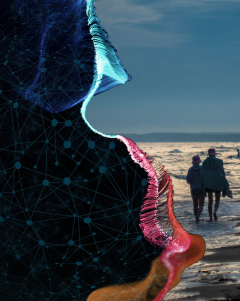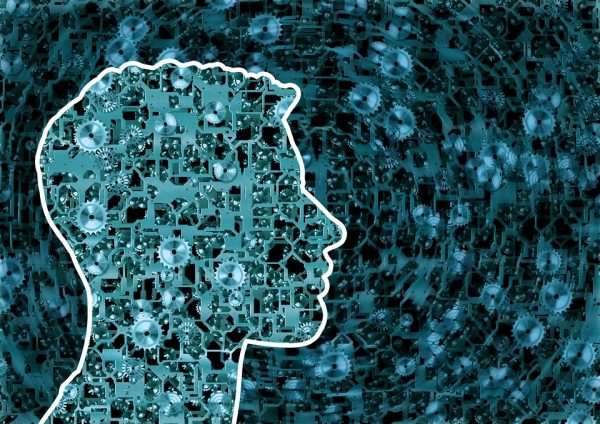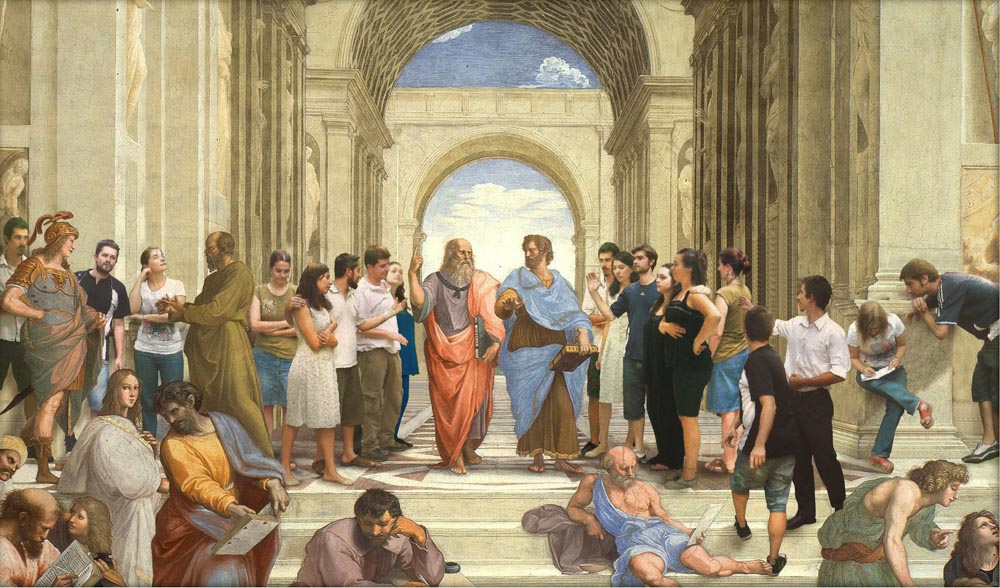The METAVERSE, A Philosophical Perspective
Article By Ilanit Adar
posted by Kurush Dordi, March 28, 2022
 The Challenges of our Current Reality
The Challenges of our Current Reality
Since the beginning of the Covid-19 pandemic, many aspects of the reality that we have been accustomed to, have changed. All at once, reality has become an unstable and inconvenient place to live in. Many of our basic needs for social gathering and human interaction became very limited. This situation had a psychological impact, and emotions such as uncertainty, confusion, anxiety and fear of the future, have been growing dramatically in our society.
In this atmosphere, there is a common and natural wish ‘to return’ to reality as it was before the pandemic, or if possible ‘to create a new reality’. The second option became the trigger for multiple companies in the tech industry to accelerate the development of the ‘Metaverse’.
The Metaverse is a virtual space where we will be able to both, interact with one another, and basically convert most of our activities of the real word to activities in the virtual world. As Mark Zuckerberg predicts: “From the moment we wake up in the morning to the moment we go to bed, we can jump into the metaverse and do almost anything imaginable”[1]
At first glance, this solution for a ‘better world’ looks very attractive. Imagine how each one of us will be able to build our own world, using our own preferred settings, just like in a game. Imagine that you can build a new identity using an ‘Avatar’ and act in the world more openly and freely. Imagine yourself going to work in the virtual space without having to leave the warmth of your bed on a very cold day, and after work, meeting your friends or going to travel to an exotic place. It is relatively easy to imagine that people will want to spend most of their time in such a virtual reality, rather than deal with the endless challenges of real life.
On the other hand, we cannot ignore the dangers of the Metaverse. It is enough to watch the docudrama film The Social Dilemma (Netflix, 2020) to become aware of the depth of these dangers. Two of them that are well described in this film are: humanity’s gradual addiction to technology and hence the desire to ‘be connected’; and the exploitation of human weaknesses by tech companies in order to increase their profits.
Beyond these two dangers, there is another important one: the loss of human sensitivity and the ability to experience subtle emotions! The more we engage in unnatural environments, the more our delicate senses weaken, as opposed to the rough instincts and impulses that are strengthened. We can already witness cases where people are so engaged in their cellular games, that they ignore their surroundings, including someone who is sitting beside them, needing help.
In addition, life itself holds a lot of vital energies that are necessary for living on this earth. The more we expose ourselves to the open air and the beauty of the natural elements, and the more we physically interact with one another, the more we charge ourselves with ‘living forces’.
A Suggestion for a Better Reality
In light of the above, if the current reality is challenging and the virtual reality with all its temptations threaten an important aspect of our humanity, what can we do in order to experience hope, and not despair, when thinking about our future?
The classical philosophers and great leaders from east and west have already suggested to us a new and better reality! A reality that we can build with our own inner forces and influence our surroundings. For example: if there is a lack of justice and morality around us, we can be more just and moral in our actions; if there is too much fear around us, we can give a good example of how to be a bit more courageous; if people around us are obsessed with money, we can show them a more balanced life where money is just a tool to achieve more important aims, etc.
The great leader of India, Mahatma Gandhi, expressed this spirit very well: “Be the change you want to see in the world”. Similar words were said earlier by the philosopher Plato: “The city is what it is because the citizens are what they are”, and also by the sage Confucius: “Every social development begins with individual development”. They, and many other wise people, pointed out the connection between the inner state of the human being and the general state of the society.
Now, imagine your own life and ask yourself: Am I living in a way that I believe is the right way? Have I found something worthy to live for? Do I experience my life as an adventure where I am the hero who can overcome the obstacles in my path? How and where can I discover the inner strength required to confront these obstacles?
These questions can be a good starting point in order to convert our life into a truly beautiful journey! A journey that will provide us with everything that we can find in the virtual space, and much more than that! A living journey that gradually creates harmony within ourselves, with others, and with nature. As Marcus Aurelius, a philosopher and famous Roman emperor, said: “He who lives in harmony with himself, lives in harmony with the universe”.
This journey is the Philosophical path, or the Evolutionary path, that belongs to all human beings. But one needs a bit of courage to recognize it and to start walking on it. Do not wait until reality changes by itself, or until artificial realities take control over your life! Start now to build yourself and your reality, and help others do the same. This adventure will not only give you a reality to live in, but a meaning to live for.
Related posts:
Image References
unsplash.com/photos/WOA3QKFjlo8 Image by Richard Horvath / Unsplash / CC0 + unsplash.com/photos/RGvkIMJlBYk Image by Pavel Pjatakov / Unsplash / CC0 unsplash.com/photos/O96QaASSRcg Image by Richard Horvath / Unsplash / CC0 + unsplash.com/photos/DkGIAjlIJu0 Image by Helena Lopes / Unsplash / CC0 unsplash.com/photos/OcXxgXYucHo Image by Richard Horvath / Unsplash / CC0 + unsplash.com/photos/Y6EIP03u_wY Image by Humphrey Muleba / Unsplash / CC0
Permissions required for the publishing of this article have been obtained
Article References
1] www.theverge.com/22588022/mark-zuckerberg-facebook-ceo-metaverse-interview




What do you think?